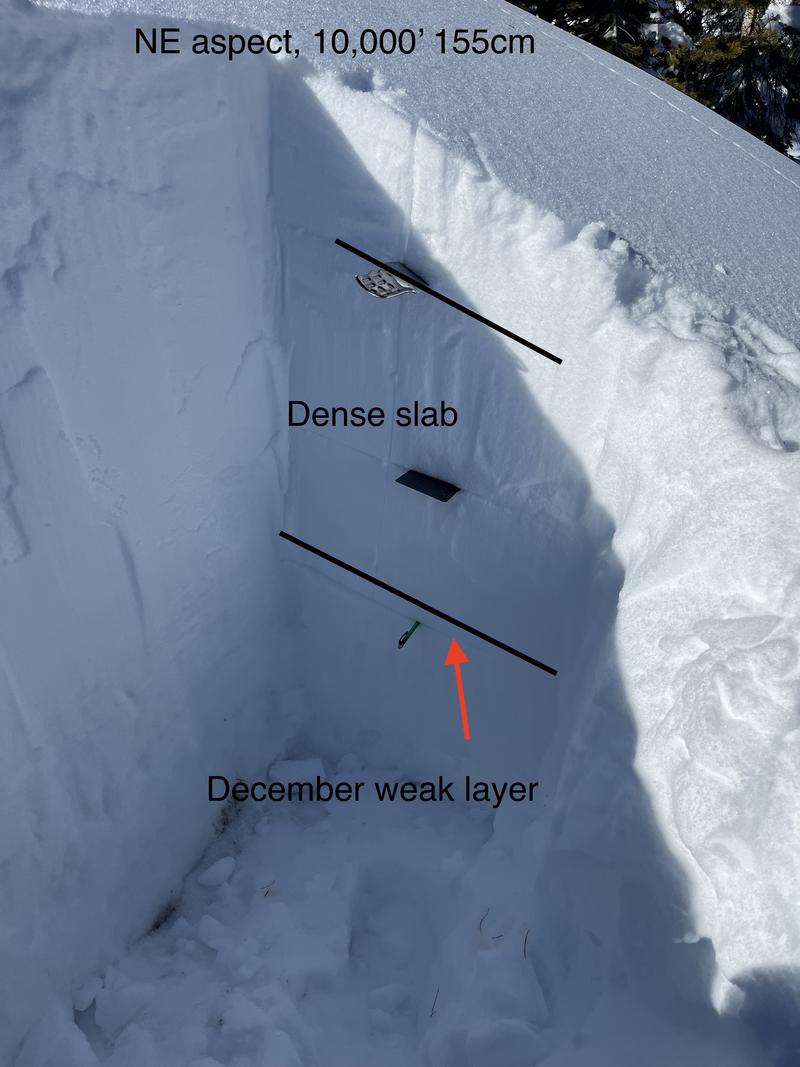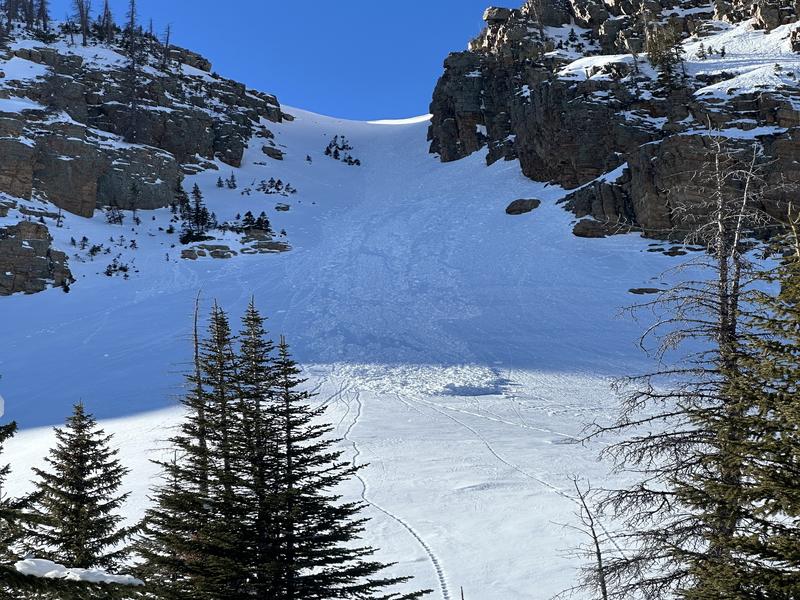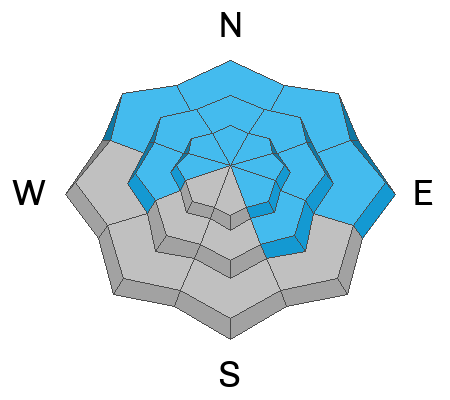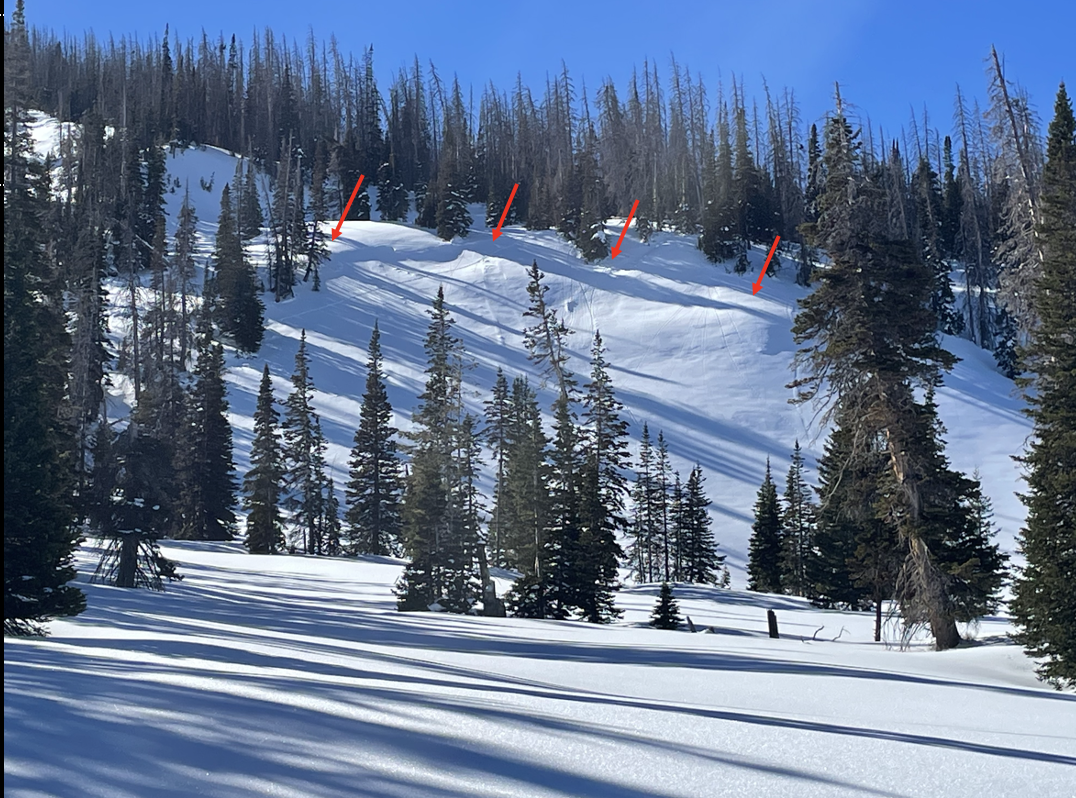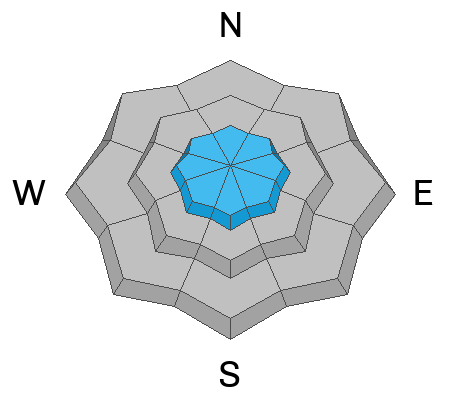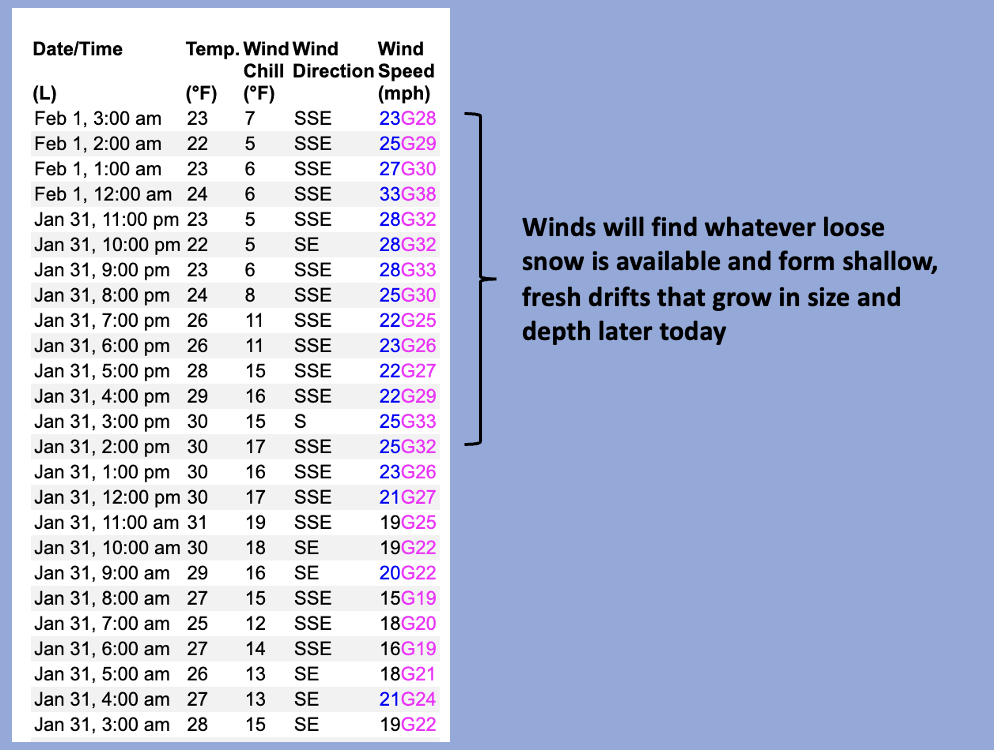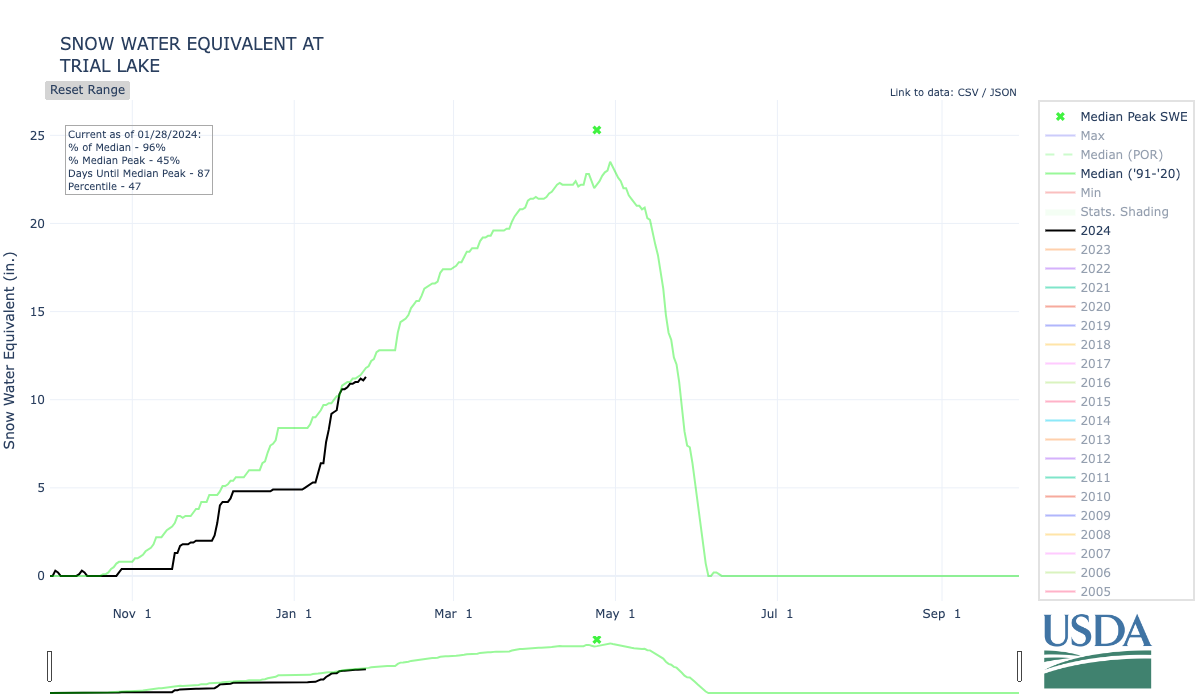Forecast for the Uintas Area Mountains

Issued by Craig Gordon on
Thursday morning, February 1, 2024
Thursday morning, February 1, 2024
Expected storminess on the horizon delivers snow, water, and wind... anticipate a bump in the avy hazard as this system materializes.
For today, look for the danger to rise to MODERATE as shallow wind drifts sensitive to our additional weight develop during the day. Timing is everything, but I bet human triggered avalanches are POSSIBLE on steep, leeward slopes by days end.
Becoming more the exception then the rule, let's not forget our problem child, the persistent weak layer that keeps MODERATE avalanche danger on our radar. Human triggered avalanches breaking deeper and wider than you might expect are still POSSIBLE, particularly on steep, rocky slopes facing the north half of the compass
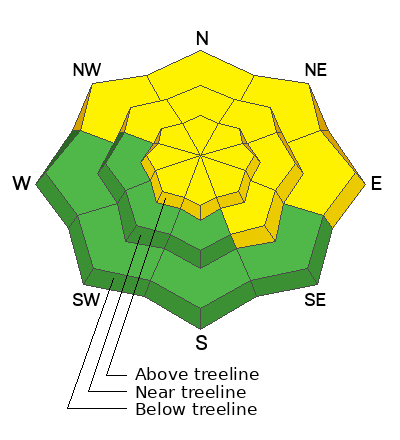
Low
Moderate
Considerable
High
Extreme
Learn how to read the forecast here


